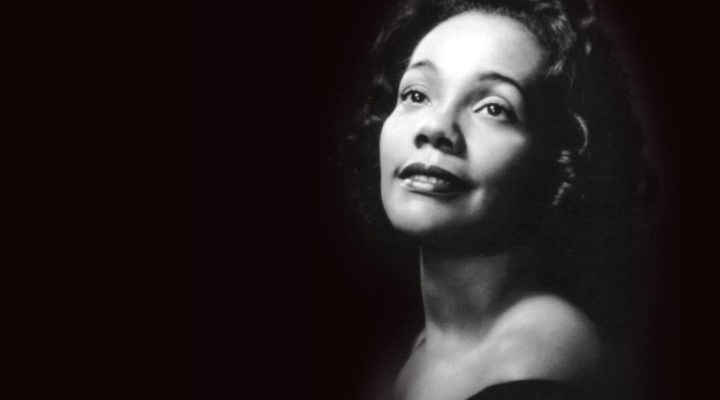Almost without noticing, thoughtful words of some of America’s greatest leaders — their sincerity, reassurance and reason — have been overthrown by unbelievable chaos and complicity.
It’s time to reunite with past and future leaders and their commitment to our democracy. Now as we weave together a tattered, but strongly spirited nation, let’s remember our rich diversity, leaders who delivered fireside chats, musical messages of freedom and equality, selfless service for others, a respect for human dignity and a new president’s promise to have faith in America and each other.
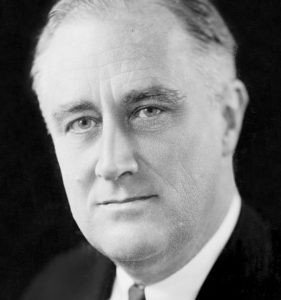
Franklin Delano Roosevelt
President Roosevelt, “FDR,”united citizens during America’s worst depression when the mood was fearful and uncertain. Beginning in 1933, FDR created positive change by addressing the country in fireside chats from his wheelchair. Since his opposition was in control of the newspapers, he used a new medium, radio, to present his programs. He arrived 15 minutes early to welcome the press and often began his chats with, “My friends” or “My fellow Americans.”
Roosevelt spoke in plain language to successfully engage the support of country, including having listeners bring their own maps for a discussion on battles and geography. He believed that “if civilization is to survive, we must cultivate the science of human relationships — the ability of all peoples, of all kinds, to live together, in the same world at peace,” and worked toward that goal.
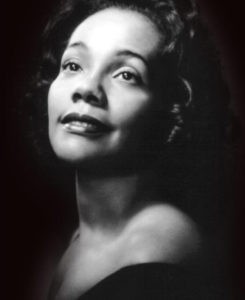
Coretta Scott King
Coretta Scott King, often called the First Lady of the Civil Rights Movement, also was a singer and violinist. Her musical concerts gave audiences an emotional connection to messages of social, economic and spiritual change. She expressed her feelings and told a story by singing from her heart.
Scott King explained her dedication: “Freedom is never really won, you earn it and win it in every generation.”
After Martin Luther King Jr.’s death, Coretta addressed women’s rights, LGBTQ rights, economic issues, world peace, and various other causes. In 1968, she called for women to unite and form a solid block of women power to fight the three great evils of racism, poverty and war.
“The greatness of a community is most accurately measured by the compassionate actions of its members,” Coretta Scott King said. She quoted her husband, “To serve, you only need a heart full of grace. A soul generated by love.”
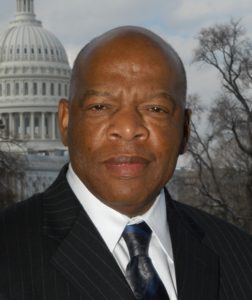
Congressman John Lewis
In 2012, John Lewis, who worked throughout his life for human rights, civil liberties and equality, offered compassionate advice to his fellow Americans: “You must be able and prepared to give until you cannot give any more. We must use our time and our space on this little planet that we call Earth to make a lasting contribution, to leave it a little better than we found it, and now that need is greater than ever before.”
One of the rights he fought tirelessly for was the right to vote. Leading marches most of his life, Lewis often suffered beatings and even a skull fracture. Still, he said, “Your vote is precious, almost sacred. It is the most powerful nonviolent tool we have to create a more perfect union.”
On July 26, 2020, his casket, carried by a horse-drawn caisson, traveled the same route over the Edmund Pettis Bridge that he walked during the Bloody Sunday march.
Last year, the U.S. House of Representatives renamed and passed legislation on the John R. Lewis Voting Rights Act of 2020, a lasting contribution among many that will eventually leave the world a better place.
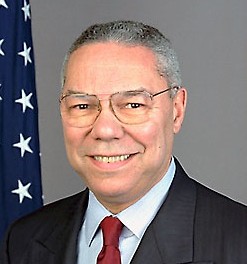
Colin Powell
Colin Powell devoted more than 50 years of his life to public service. The son of immigrants advocated kindness: “Treat people kindly. When you are kind to somebody, and I don’t mean necessarily buddy-buddy, just show kindness and consideration. Show that people are worthy and you respect them and you are glad they’re with you.”
When Powell retired, he continued to serve as founding chairman of a national movement for young people. America’s Promise Alliance came from Martin Luther King Jr.’s “I Have a Dream” speech, where King noted that the Constitution and Declaration of Independence are a promissory note for all young people, from all walks of life. Every living president through Barack Obama has signed its declaration.
“In our diversity and our spirituality, our tolerance and our commitment to human dignity, lies our strength and our hope for a better future. Extremism and violence are our greatest foes. We must not listen to the siren song of the extremists and bigots who cloak themselves in false spirituality in an attempt to divide and to weaken us.”
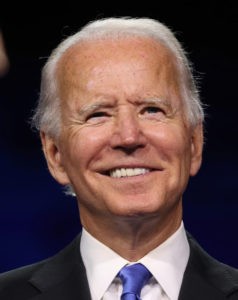
Joe Biden
Joe Biden communicates with empathy, fairness and gentle authority. He was elected by more than 80 million votes — more than any other presidential candidate in history. Biden is about to lead a historically shipwrecked nation in a pandemic. A self-described optimist, he believes America can be defined in its possibilities.
The nation’s second Catholic president often says that his faith sustains him. “I pledge to be a president who does not seek to divide, but unify, who doesn’t see red states and blue states, but only sees the United States.”
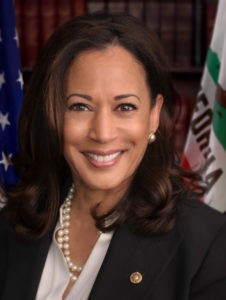
Kamala Harris
Kamala Harris, the first Black woman and the first South Asian woman to serve as vice president, says she and Biden were “raised the same way, with the same values,” and they care about “family and hard work.” She says the country has more in common than what divides them.
On this inauguration week, we are inspired by these words of Joe Biden: “And now, together — on eagle’s wings — we embark on the work that God and history have called upon us to do. With full hearts and steady hands, with faith in America and in each other, with a love of country — and a thirst for justice — let us be the nation that we know we can be … A nation united. A nation strengthened. A nation healed.”
Courage. Service. Faith. Words of healing.
Phawnda Moore is a Northern California artist and author of Lettering from A to Z. In living a creative life, she shares spiritual insights from traveling, gardening and cooking. Find her on Facebook at Calligraphy & Design by Phawnda and on Instagram at phawnda.moore.


